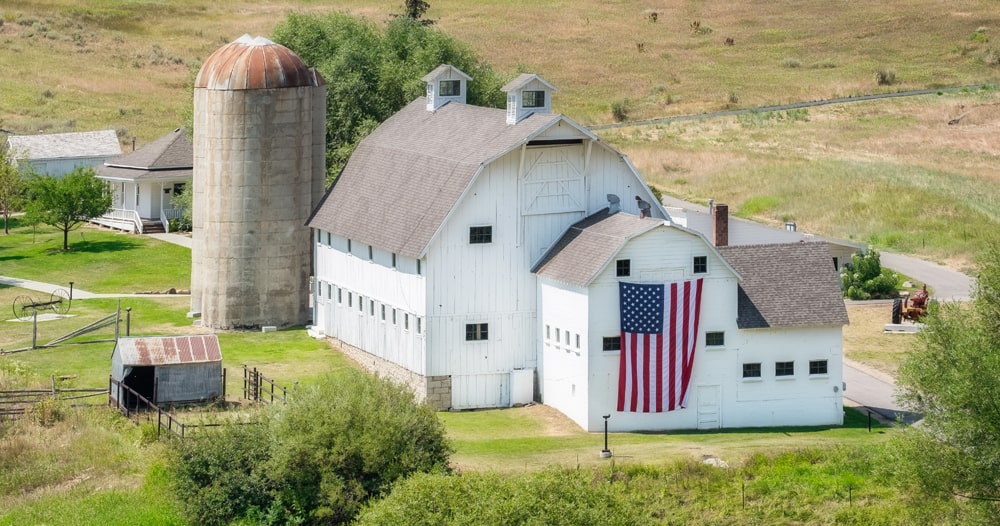
|
|---|
| Home News Contact us |
|
 |

|
|---|
| Home News Contact us |
|
 |

|
|---|
| Home⇨ The growing importance of water conservation in modern farming |
The growing importance of water conservation in modern farming |

Unlocking the power of water conservation in modern agricultureWater conservation has become one of the most pressing issues facing modern agriculture. With the increasing population and demand for food, the need for water resources in farming continues to grow. However, modern agriculture must not only focus on increasing production, but also on resource conservation and environmental preservation. The aim of this article is to examine the growing importance of water conservation in modern farming, as well as the problems associated with water consumption in agriculture and the ways to address them. The article will also discuss successful examples of water conservation practices in agriculture and the benefits they provide for the economy and the environment. The importance of water in agricultureWater plays a crucial role in both plant and animal agriculture. In plant agriculture, water is essential for plant growth, nutrient uptake, and photosynthesis. Without sufficient water, plants cannot produce crops, and the quality and yield of crops can be severely affected. In animal agriculture, water is necessary for livestock health, growth, and reproduction. However, agriculture is one of the largest consumers of water worldwide. The amount of water used in agriculture varies greatly depending on the type of crop, climate, and irrigation method. According to the Food and Agriculture Organization (FAO), agriculture accounts for 70% of global freshwater withdrawals. Given the vital role of water in agriculture and the large amounts of water used, it is crucial to find ways to conserve and manage water resources effectively. Issues related to water consumption in agricultureIssues related to water consumption in agriculture are significant and multifaceted. One major concern is the negative consequences of excessive water use, which can have detrimental effects on the environment and society. Negative consequences of excessive water useOveruse of water in agriculture can have negative consequences on the environment and society. For instance, excessive water use can lead to waterlogging and salinization of the soil, which can decrease crop yields and quality. It can also cause water pollution due to the leaching of fertilizers and pesticides into nearby water bodies. Moreover, over-pumping of groundwater can cause subsidence and land sinking, resulting in damage to infrastructure and loss of wetland habitats. Water availability issuesAnother problem related to water consumption in agriculture is water availability. In many regions of the world, water resources are becoming scarcer due to drought, overuse, and climate change. This can lead to competition for water resources among different sectors, including agriculture. Furthermore, in some areas, the cost of accessing water for irrigation purposes is becoming increasingly prohibitive, making it difficult for small farmers to compete with larger, more resourceful operations. In order to address these issues, effective water management practices are needed, including sustainable irrigation methods, water conservation strategies, and improved water use efficiency in agriculture. Water conservation methods in agricultureTo address the problems associated with water consumption in agriculture, various water conservation methods are being adopted by farmers and agricultural organizations. Some of the common methods are described below: Soil moisture technologiesSoil moisture technologies involve using sensors to monitor the moisture content of the soil and apply water only when necessary. This method helps to reduce water wastage and increase crop yield by optimizing irrigation. Irrigation methodsThere are several irrigation methods that can be used to conserve water in agriculture, including:
Use of plant-based fertilizers and soil enhancersPlant-based fertilizers and soil enhancers, such as compost, cover crops, and green manure, can help to improve soil health and water retention, reducing the need for irrigation. MulchingMulching involves covering the soil around the plants with a layer of organic material, such as straw, leaves, or wood chips. This method helps to reduce water evaporation, maintain soil moisture, and prevent weed growth. WaterAid Drought SolutionWaterAid Drought Solution is an innovative product that helps to conserve water in agriculture by increasing soil moisture retention. The product consists of a water-absorbing polymer that is applied to the soil, where it absorbs and retains water. This method reduces the need for frequent irrigation, saving water and reducing energy use. By adopting these water conservation methods, farmers can reduce water use in agriculture and improve crop yields while preserving the environment and natural resources. Benefits of water conservation in agricultureWater conservation in agriculture can provide various benefits, some of which are outlined below: Resource savings and cost reductionsWater conservation in agriculture can result in significant resource savings and cost reductions for farmers. By reducing water consumption and improving irrigation efficiency, farmers can save on water bills and reduce energy consumption, leading to lower production costs. Increased crop yieldWater conservation in agriculture can result in significant resource savings and cost reductions for farmers. By reducing water consumption and improving irrigation efficiency, farmers can save on water bills and reduce energy consumption, leading to lower production costs. Reduced negative environmental impactWater conservation in agriculture can also help to reduce the negative environmental impact of agricultural activities. For instance, reducing water consumption can help to protect water resources, prevent water pollution, and reduce greenhouse gas emissions associated with water pumping and transportation. Overall, water conservation in agriculture can provide significant benefits for farmers, the economy, and the environment, making it a crucial aspect of modern farming practices. Examples of successful water conservation practices in agricultureWater conservation practices have been successfully implemented in many parts of the world. Some examples of successful practices and the methods used are outlined below: IsraelIsrael is a country that faces a severe water scarcity problem but has managed to become a global leader in water conservation in agriculture. One of the methods used is drip irrigation, which has resulted in a 30% reduction in water use in agriculture. Israel also uses treated wastewater for irrigation, reducing the pressure on freshwater resources. AustraliaAustralia has implemented a range of water conservation practices, including soil moisture monitoring, precision irrigation, and conservation tillage. These practices have helped to improve water use efficiency in agriculture and reduce the negative environmental impact. USAIn the United States, the use of cover crops, conservation tillage, and no-till farming practices have helped to reduce soil erosion and water use in agriculture. Furthermore, the use of conservation tillage and no-till farming can increase soil moisture, reduce runoff, and improve soil quality.
Securing our future - the imperative of water wonservation in agricultureIn conclusion, water conservation in agriculture is becoming increasingly important due to the growing demand for food and the limited availability of water resources. The negative consequences of excessive water use in agriculture can have significant environmental and social impacts, making it crucial to adopt sustainable farming practices that conserve and manage water resources effectively. The adoption of water conservation practices can provide numerous benefits, including resource savings, cost reductions, increased crop yield, and reduced negative environmental impact. Successful examples of water conservation practices, such as drip irrigation, soil moisture monitoring, and the use of innovative products like WaterAid Drought Solution, have been implemented in various parts of the world. Overall, the conservation of water in agriculture is critical for the future generation's food security and the preservation of natural resources. The implementation of sustainable farming practices and the adoption of innovative solutions to conserve water resources can help to ensure a sustainable future for agriculture and the environment. Thank you for reading! |
Phone:E-mail:
|
Contact us now!If you need advice on our innovative product, please use the form. Our consultant will contact you. |
|---|
|